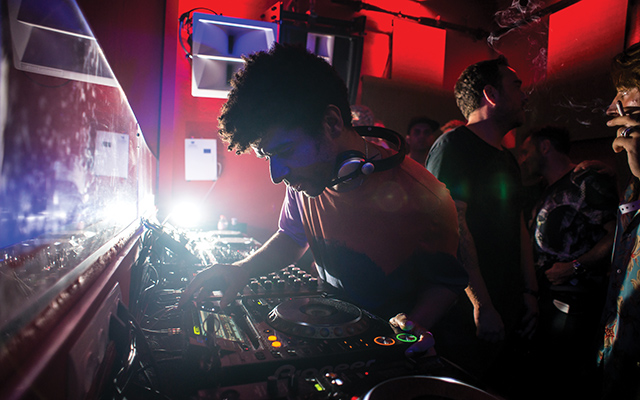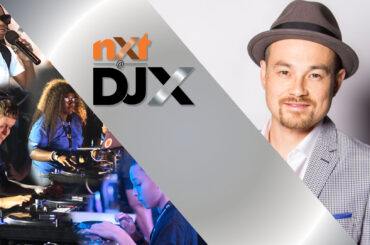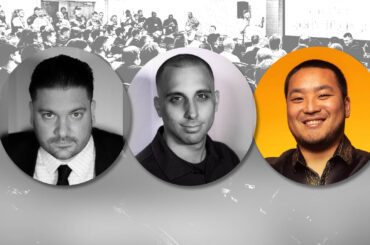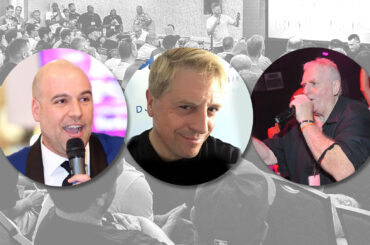DJ Times: What about bottle service culture?
Jones: I’m not against table service—there’s a time and place for it. If you want to spend the money and have a little space for yourself, I’d be an idiot to say I’m against it. I play a lot of those clubs. Every DJ does, so any DJ that says, “Oh, I hate table service, blah blah blah…” is hypocritical because they’ll happily go and get paid twice their fee because that’s in the club. It’s the only reason why DJ fees are getting so big in clubs. DC-10 keeps that rawness. The guys could easily put some tables around the terrace and make a fortune every summer, but I’ve got to respect that they don’t and that they care more about maintaining that underground vibe. It’s rare these days, and it’s why I’m still part of it.
DJ Times: It feels like the whole underground-vs.-mainstream argument has dissipated in recent years, especially as we get further from EDM’s explosion in the U.S. Why do you think that is?
Jones: Personally, the reason is that the people who had anything to say about it realized how much crap they were spouting. The underground-vs.-EDM thing? Who cares? Really, really—who cares? Some of the DJs who were talking about that were still going and playing the big festivals. If everyone just focused on what they’re doing and making good music and making sure they’re rocking the crowd, then that would be much better. Why do people spend any time thinking about the thing they don’t care about?
DJ Times: Makes no sense, then…
Jones: I’m not a lover of EDM, but if I’m in a big festival I go check out some of the shows. You know what my feedback on it is? Everyone in that crowd is having an amazing time. If people are having an amazing time, why should I have anything negative to say about it? If I want to go there and experience the music or the lights or whatever, I’ll go there! If I don’t, I don’t go there. I think it’s died down because it’s boring, more than anything else. It was a boring thing to do, and I think a lot of people just did it to get some press out of it, maybe.
DJ Times: Could it be related to the idea that some of the kids who are now old enough to go to clubs may have discovered you in the U.S. at festivals like Ultra?
Jones: Insomniac was one of the first people to put on an underground stage at one of their festivals outside of San Bernardino years ago, and I remember the discussion with my agent about them wanting to do the stage. I was one of the first people to play one of these stages, even when people were saying it was too commercial. One of the reasons why was about three years ago, I was playing at Verboten in New York. I was playing an all-night-long set—I DJed for nine hours in the end—and at 8:30 in the morning, the lights finally came up, and this girl came running up to the decks and jumped up. She wanted to shake my hand, and she said, “I just want to tell you, I drove two hours to come tonight. Three months ago I had no idea who you were, but I was with some friends at TomorrowWorld down in Atlanta and they took me over to your stage, I heard the music, and I loved it. I drove down here and was here from the start of the night.”
DJ Times: There you go…
Jones: To me, that is exactly why—even though I wasn’t thinking about things like that happening at the time—it’s so much more important [to play these festivals]. Music is one of those things that, unless somebody recommends you or plays for you, you don’t just search and go, I want to go find this [specifically]. There’s always a trigger to finding new music, and those kinds of festivals are the perfect opportunity. That happening to me is way cooler than going to play vinyl only to 300 super-heads. Don’t get me wrong: I love doing that, but equally and more fulfilling for the greater benefit of the underground scene is doing things like what I was just talking about.
DJ Times: In the last year, club culture has come under attack both physically and legislatively—Pulse Orlando, Fabric shuttering, BPM shooting in Mexico. From an artist’s perspective, how do you foster a safe, inclusive environment for ravers?
Jones: I’m lucky enough that my team has been doing this stuff a long time, so they make sure if I’m going to play somewhere that the club, the environment, and the promoter are trustworthy. Don’t get me wrong, bad things have happened. I was down in Argentina when people died at Time Warp. I wasn’t playing the night [of the shooting] at BPM, but I know the story.
DJ Times: What about crackdowns on drugs in clubs?
Jones: People are going to take drugs anyway. If they can’t go to a club to take them, they’re going to sit at home or go to a house party to take them. You cannot stop young people from taking drugs; it’s part of the world we live in. People have to make sure it’s as safe as possible. Me, personally as a DJ, there’s a few times where fights have broken out on the dancefloor. You just try to be as professional as you can. If the best thing to do is to stop the music, then you stop the music. Sometimes the best thing to do is carry on and not draw attention to it. You just have to make a judgment call. I’m not saying it’s not my responsibility to make sure people are safe in the club, but it’s my responsibility to make sure I’m working with people who do that.







